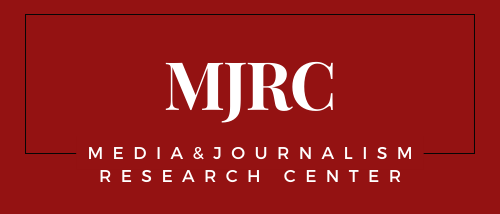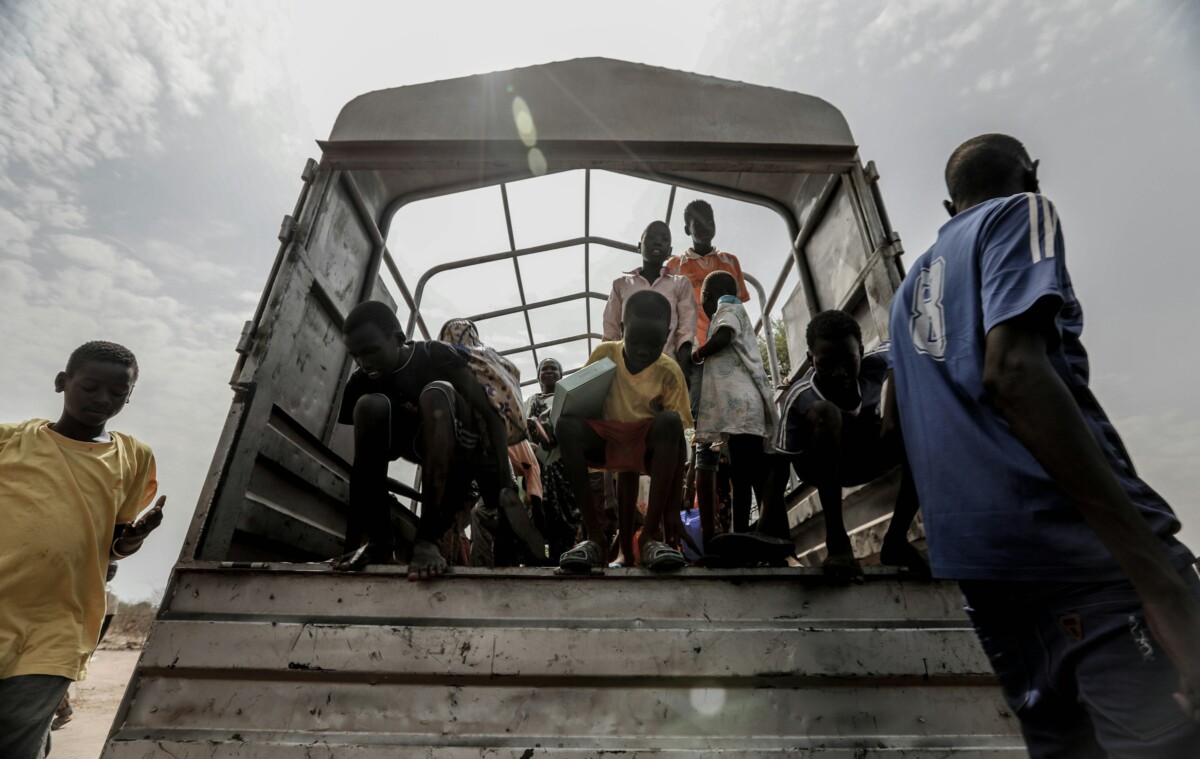Student Journalism Project: Rwanda-Style Deportation Schemes Are Unworkable
Politicians across Europe, spanning the political spectrum from right to left, are copying the UK’s Rwanda-style policies to move asylum seekers to third countries. A recent report from a journalism class at Central European University (CEU) in Vienna casts doubt on the practicality of these proposals.
In early June, as predicted by polls, far-right factions made substantial inroads in the European elections. The European Conservatives and Reformists (ECR) and the Identity and Democracy (ID) group, the two most right-leaning factions in the European Parliament, secured a combined total of 131 seats, accounting for nearly one-fifth of all MEPs in the upcoming term. They include the National Rally in France, the leading ultra-nationalist group in the incoming Parliament, and Brothers of Italy, the party of Italian Prime Minister Giorgia Meloni, which received support from over a quarter of the Italian electorate.
Despite the European People’s Party (EPP) achieving a decisive victory, the far-right’s influence on European politics is set to be significant. Should these far-right groups consolidate into a single entity, they would form the second-largest faction in Parliament, trailing only the EPP.
One key area where their influence is expected to be felt is the EU’s migration policy. Throughout the campaign, pledges to close borders to migrants or relocate asylum seekers to third countries were prevalent. Even some moderate parties, fearing electoral repercussions, echoed these sentiments. As the June 2024 European election approached, anti-immigration rhetoric gained traction across the political spectrum, with both left and center parties adopting the far-right’s call for “Rwanda-style policies” – a strategy involving sending migrants to third countries like Rwanda instead of processing their asylum claims within Europe. Less than a month before the EU elections, 15 out of the 27 EU governments sent a letter to the European Commission, demanding a plan to send asylum seekers to third countries.
However, with the elections concluded, the feasibility of these promises remains in question. Interviews with two dozen European experts, activists, and politicians conducted between January and March 2024 indicate that migration policies will likely be abandoned post-election due to their high costs and impractical nature.
Doing the right thing?
In recent years, the issue of remigrating asylum seekers to other countries has become increasingly controversial, particularly in the lead-up to the EU elections. Politicians have often targeted immigrants as a convenient scapegoat. Lukas Gahleitner-Gertz, an asylum law expert with Asylkoordination Österreich, an NGO in Vienna, points out that politicians often rally people against a group that cannot harm them, as it is “an easy and cheap way to gain votes” since immigrants are not allowed to vote.
However, what sets this year apart is the rise of anti-immigration sentiment, which has forced even mainstream political parties to adjust their stance to appease extremist factions.
For example, the right-wing Freedom Party of Austria (FPÖ) and the National Rally in France used anti-migration narratives to bolster their electoral campaigns. Far-right politicians like Maximilian Krah of the Alternative for Germany (AfD) advocated for turning the EU into a “fortress” against migrants, promoting the concept of remigration similar to Rwanda-style migration policies.

Surprisingly, even politicians from non-right parties, such as the left-wing Sahra Wagenknecht Alliance and the moderate European People’s Party (EPP), have been discussing for some time the possibility of Rwanda-style deals and deportations to third countries in response to the rise of far-right ideologies. Ursula von der Leyen, President of the European Commission and EPP member, even included outsourcing asylum seekers in her party’s manifesto. This shift in policy has raised concerns, with Lorenzo Piccoli, leader of the Migration Policy Centre at the European University Institute (EUI) in Florence, noting the sudden change in stance by the European Commission, which had previously criticized such deals as incompatible with European legislation.
Gambling taxpayer money
Despite criticism from human rights activists, “asylum outsourcing” has emerged as a prominent policy proposal among candidates vying for seats in the European Parliament elections. This strategy was peddled as a catch-all solution to what is described as an ongoing migration crisis in Europe.
“The deal is harmful for the local community and for the immigrants,” said Arilda Lleshi, an activist who protested in front of the Albanian parliament when legislators ratified the migration centers deal with Italy last February. Lleshi argues that establishing detention camps in Albania could negatively impact the tourism industry, as safety concerns might deter visitors. She also fears that immigrants housed in these camps could face violations of their rights.
Legal experts and human rights organizations have raised alarms over policies similar to the UK’s Rwanda scheme, highlighting their potential infringement on the Universal Declaration of Human Rights and the 1951 Refugee Convention. These measures, which shift the burden of addressing migration to third countries, risk compromising fundamental human rights, according to EUI’s Piccoli. This shift could lead European governments to undermine their own rule of law. A significant concern is the principle of “non-refoulement,” a universally recognized right under international law that prohibits deporting individuals to places where their safety and well-being are in jeopardy.
But despite the legislative push, the inherent impracticality and high costs of Rwanda-like policies may eventually force authorities to reconsider such plans. The Italian government’s intention to process 36,000 asylum seekers in Albania annually faces substantial hurdles, given that the two planned centers in the country have a combined capacity of only 3,000 individuals at any given time. Kristof Bender, deputy chairman and senior analyst at the European Stability Initiative, a Berlin-based think tank, points out the unrealistic nature of this target and the logistical challenges that must be addressed.
If you come to the UK illegally you will be stopped from making late claims and attempts to frustrate your removal.
You will be removed in weeks, either to your own country if it is safe to do so, or to a safe third country like Rwanda. pic.twitter.com/8NFaa4DbwT
— Rishi Sunak (@RishiSunak) March 7, 2023
These schemes are likely to burden taxpayers significantly. For instance, the UK government’s policy with Rwanda is projected to cost approximately £120 million (€142 million) annually, equating to around £1.8 million (€2.1 million) per asylum seeker. Similarly, the Italy-Albania agreement, allowing Albania to host asylum seekers during the application process, is expected to cost €600 million over five years, amounting to €40,000 per refugee. To put this into perspective, this sum could cover five average annual salaries in Albania or 1.2 salaries in Italy.
These financial outlays starkly contrast the benefits of integrating asylum seekers into host nations. According to data from IDOS, a research center, migrants in Italy paid a total of €5.3 billion in income taxes alone in 2020.
The labour factor
Despite their popularity on the campaign trail and the right-wing wins in the EU elections, implementing policies inspired by Rwanda’s approach to migration may prove to be an uphill battle in the post-election landscape.
Months before the EU elections, European Stability Initiative’s Bender dismissed the migration plans introduced by the right-wing party of Prime Minister Meloni in Italy as a “publicity stunt.” Bender argued that these plans were a desperate attempt to demonstrate action until the European elections concluded. “It is very clearly not a solution, and they all know this,” Bender said. September 2023 surveys showed that 71% of Italians felt Meloni failed to deliver her immigration promises.
Jenna Althoff, a migration policy researcher at Land.Zuhause.Zukunft in Hildesheim, Germany, notes that politicians often win votes on migration issues without fulfilling their election promises. According to Althoff, reputation among voters takes precedence once politicians are in office. Eva Singer from the Danish Refugee Council highlighted that Denmark’s decision not to return Syrians forcibly is influenced by political climate rather than legal treaties.
Moreover, Europe urgently needs a functional immigration system to stimulate economic growth and address labor shortages. Instead of diverting asylum seekers to third countries for processing, expediting the asylum process could enable immigrants to join the workforce more swiftly. “We have to realize that without migration, our lives are getting tougher,” said asylum law expert Gahleitner-Gertz. Without a steady influx of migrants, industries such as healthcare, transportation, and caregiving will face increased strain.
Germany has already amended its legislation to deter asylum seekers from seeking employment in the country, offering a pathway to work visas instead, according to Hakan Demir, an MP from the Social Democratic Party (SPD).
Beefing up legal avenues for immigrants to secure work in Europe could alleviate the growing demand for labor and curb illegal trafficking. Althoff questions, “Why is it so hard to speak about the benefits of migration?”
With the recent reconfiguration of the power balance in Europe, the likelihood of the debate shifting in that direction is very slim.
Reporting for this article was carried out by Alison Gray, Anastasiia Hatsenko, Javid Huseynli, Leonardo Ingannamorte, Peter Lang, Samir Maharramov, Alzbeta Michalova, Omar Mohamed, Thi Thao Vy Nguyen, Ellinor Strowel, Tatiana Voronova and Kateryna Zinchenko, Master’s students at the Central European University in Vienna, under the editorship of Professor Marius Dragomir who is also the director of the Media and Journalism Research Center.
Invest in independent media research and join a community of practice.
Your contribution supports MJRC’s investigations and global analysis. As a supporter, you can receive early access to new findings, invitations to small-group briefings, inclusion in our Supporters Circle updates, and the option to be listed on our Supporters Page.
Contribute to MJRC
